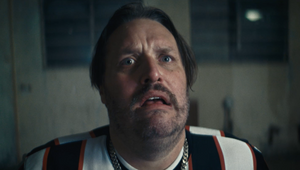
The Planner: A Radical Discipline

As CSO of VCCP Max Keane leads strategy and has run award-winning strategy departments on both sides of the Atlantic, with stints in London, New York and Toronto.
LBB> What do you think is the difference between a strategist and a planner? Is there one?
Max> I’ve always preferred ‘planner’. It hails from the grand tradition of big thinking – good enough for the likes of Stephen King and Stanley Pollitt is more than enough for me.
LBB> And which description do you think suits the way you work best?
Max> We’ve had phygital. We’ve had glocal. Could I be a plannergist?
“All hail the modern maven: the plannergist. No more lines between planning and strategy, just the relentless pursuit of clarity wrapped in the most convoluted jargon we can muster.
We’ll ideate synergies, disrupt paradigms, and workshop moonshots – because if the words don’t mean anything, then neither does the job title.”
No, of course not. That would be as silly as someone calling themselves a public planner.
LBB> We’re used to hearing about the best creative advertising campaigns, but what’s your favourite historic campaign from a strategic perspective? One that you feel demonstrates great strategy?
Max> Rather than roll out the history books I thought I’d point at something that’s out in the world now and it has to be the latest gravy work from KFC.
As one of the planners in our department said on the chat when it launched, “don’t chin stroke about it, the world just needs more nonsensical shit.” (Credit to Luke Stockil). It's a great strategy leading to batshit, brilliant creative.
LBB> When you’re turning a business brief into something that can inform an inspiring creative campaign, do you find the most useful resource to draw on?
Max> Nosiness.
I remember being annihilated by a CMO of a certain fast food restaurant after a presentation.
They hated everything. Absolutely everything.
So, feeling thoroughly humbled, I parked my car by a drive-through ordering window and just sat there for four hours, watching. Teenagers awkwardly splitting the bill, parents trying to keep toddlers from melting down, someone in a suit demolishing a Big Mac like they were on a mission.
And that’s when it clicked. In those few hours, I finally cracked the brief – not from data dashboards or tidy little research groups, but from just observing real life in all its unpolished glory.
I’m not saying it’s revolutionary, but it was a good reminder. You can’t always find the answer in tech or tools. Sometimes, the best insights come from stepping outside and seeing how people actually live their lives, in their natural habitat. It’s messy, it’s unpredictable, but we all know it’s where the truth is really hiding.
LBB> What part of your job/the strategic process do you enjoy the most?
Max> Department riffs. It sounds a bit soft, but there’s nothing I like more than riffing with our bunch of ridiculously generous, outrageously talented and consistently low ego planners.
LBB> What strategic maxims, frameworks or principles do you find yourself going back to over and over again? Why are they so useful?
Max> Constructive dissent; be hard on the work but never on the people.
LBB> What sort of creatives do you like to work with? As a strategist, what do you want them to do with the information you give them?
Max> Massive egotists who ignore the brief. Or if they’re not available, the collaborative lunatics in the VCCP creative dept.
LBB> There’s a negative stereotype about strategy being used to validate creative ideas, rather than as a resource to inform them and make sure they’re effective. How do you make sure the agency gets this the right way round?
Max> Having worked in the US, I can see where this might have come from, but it’s honestly not something I’ve experienced in the UK. And with AI coming to validate things for us, planners would be wise to double down on being the very best feeders of creativity.
LBB> What have you found to be the most important consideration in recruiting and nurturing strategic talent?
Max> I can teach you craft, but you can either make a lateral leap or you can’t. That’s what I look for and concentrate on nurturing. There are a lot fewer planners who can actually do this than there should be.
LBB> Do you have any frustrations with planning/strategy as a discipline?
Max> I get pretty frustrated with people who think their job is filling in boxes or just fiddling around the edges. Planning should be a radical discipline. I do wonder where we went wrong that a lot of the next generation of planners seem to think this is where their worth lies.
LBB> What advice would you give to anyone considering a career as a strategist/planner?
Max> In a world full of AI, the role of a junior planner has to more than fact gathering at speed. We need to shift the focus of what junior planners spend their time learning.
Becoming a great planner requires doing the hard yards as a junior to spend time face to face with people, to be brilliant observers and predictors of culture, and to learn the art of excellent creative judgement. All of these are areas where AI won’t be as useful as a planner who has developed an intuitive understanding of audience behaviour and creative brilliance.
There is no doubt however that becoming a skilled prompter will become a valued attribute of many jobs including planning. But to paraphrase a famous former copywriter, someone will say one day “it took me two minutes to write the prompt but 20 years to know what to prompt.”















